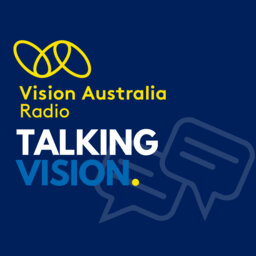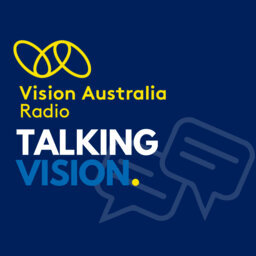Talking Vision 598 Week Beginning 1st of November 2021
It’s an episode of award winners this week on Talking Vision as Peter Greco chats with David Blyth Award winner Claire Tellefson, they caught up on Vision Extra recently to talk more about her work bringing digital literacy to people in the deafblind community, and working to make telecommunications more accessible.
Then later in the show you’ll hear from Tess Herbert, she catches up with blind music pioneer and long-serving Vision Australia staff member and volunteer Dorothy Hamilton to talk about music, life and being honoured with a lifetime achievement award by Vision Australia at the 2021 Annual General Meeting.
In 1 playlist(s)
Talking Vision by Vision Australia Radio
Vision Australia Radiothon is on now. Donate via www.varadio.org and make a tax deductible donation …Social links
Follow podcast
Recent clips

Talking Vision 819 Week Beginning 16th of February 2026
28:59

Talking Vision 818 Week Beginning 9th of February 2026
28:10

Talking Vision 817 Week Beginning 2nd of February 2026
27:37
 Talking Vision by Vision Australia Radio
Talking Vision by Vision Australia Radio